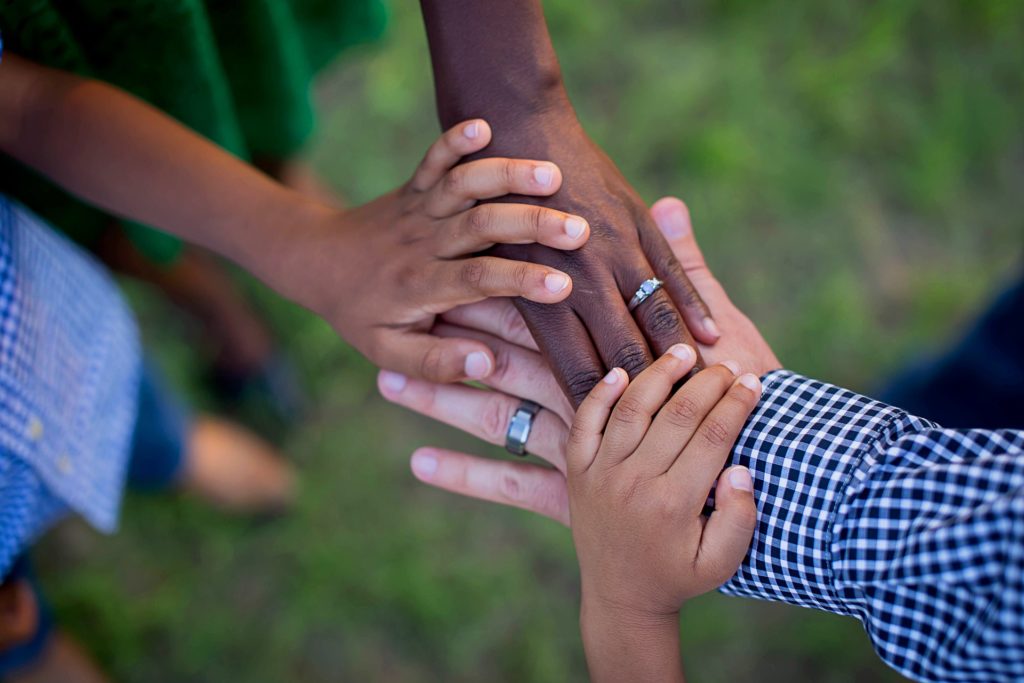A new study, published in the International Journal of Mental Health Nursing, investigates the role of family in recovery by consulting the experiences of long-term mental health service users. The researchers, led by Susan Waller from Monash University in Australia, explores the diverse ways family can contribute to an individual’s recovery and also underscore participants’ reiterated need for boundaries with family members.
“A multifaceted approach is needed to promote family-focused recovery practice,” the authors write. “The needs of different family members and the needs of the family as a group should be considered concurrently alongside the individual’s needs in their recovery plan. Individual and relational components of recovery should be embedded in policy and clinical practice.”

Families can be both “a source of trauma and a source of healing,” can “impede recovery” as well as “play a vital role for their relative’s recovery journey,” can “contribute to their relative’s stress” and also can help by “offering encouragement, promoting help-seeking and offering housing and financial assistance.” Relational aspects of recovery are often identified as essential, some naming recovery as a “dynamic interaction between the individual and their social environment.” Others have deemed relationships as “vital to recovery: they shape identity and contribute to or hinder well-being.”
Waller et al. aimed to understand the different types of essential relationships (i.e., family, friends, community) and how these relationships contribute to the recovery process. Specifically, they examined “how those with a mental illness define and understand the role (if any) of family in their recovery journey,” in order to “extend and refine existing recovery frameworks, influence practice, guide the development of professional resources, and inform policy.”
In this qualitative study, semi-structured interviews with participants who identified as having a “severe mental illness” were conducted to explore their perspectives of “where family were positioned in their recovery.” The final 12 participants, aged between 25-67, were identified through purposive and snowball sampling in a rural region in south-eastern Australia, an area that is socio-economically disadvantaged and under-resourced. Interview questions explored who participants considered as family and their roles, if any, in their recovery journey. For example: How do you define your family? Who is in your family? What has your experience been of your family helping you in your recovery journey, if at all?
The authors identified five overarching themes, represented by participant quotes.
- Understandings of recovery
“Overall,” write the researchers, “participants appreciated that recovery was about acceptance, empowerment, and a ‘lifetime journey,’” containing nuances regarding relationship to “mental illness,” recognition of recovery as relational, and responsibilities associated with healing. One participant is quoted as saying:
“Recovery is a process where you start from one end of the spectrum and work your way through the areas of concern and reach a point…where you acknowledge your failures and go above and beyond.”
- Defining family
Definitions ranged from general descriptions including extended family to more particular parameters such as solely the nuclear family or a partner. A few included community figures such as clinicians. One participant named family as consisting of my son and his girlfriend, having no contact with other family members reportedly because of their understanding of the participant’s mental health.
- Family contributions to recovery
Varying perspectives were found concerning family contributions to improvement, from family giving a sense of purpose and meaning (I don’t know if I would even be alive [without my family]) to gratitude for having family monitor recovery/provide practical assistance. Many communicated the importance of boundaries with family in the recovery process, as illustrated by one participant:
“I sort of explain to one of my cousins that you don’t need to check up on me every day.”
Social and emotional support was also described by others, with one participant sharing:
“My son…we had to do something really hard yesterday and he just made us all laugh, and…lightens the mood and make sure everything was okay.”
- “There’s good and bad:” family involvement in recovery
“Family can be the source of making you better and definitely the source of making you worse,” writes one participant on the duality of family involvement. Another clarifies the complexity of involving important relationships in their recovery:
“I suppose the only ones I can talk to aren’t friends and family…it’s more professionals. I guess what I try to do is block the rest of my world out. I don’t want them seeing me like this…I don’t want friends and family to worry…I don’t want them to judge or misunderstand, or I don’t want to lose them.”
- Services, family, and recovery
“There was a widespread recognition that one approach did not meet the needs of all individuals and their families,” write Waller and colleagues. One participant, when asked how services could support family-focused recovery, stated:
“Asking the consumer, I guess, what involvement they want or they need with their family, and then communicating with the family…every consumer is going to be different and have different needs, and their needs change…you need to be aware of it and just [how] family involvement will change.”
The authors include clinical service strategies, including educating family members about mental health, assisting participants in understanding their own family, guiding participants to build skills in talking to their family about their experience, and transparency regarding confidentiality.
This study illustrates the lack of consensus as to who is a family and underscores the significance of asking individuals who they consider to be family. While the five themes are congruent with previous literature, new ways in which the participants described desiring services to “support their recovery journey through and with their family are telling and provide insight into what might be meant by family-focused recovery.”
Limitations of this study include the sample size and population, comprised of people from one geographical region and having similar cultural backgrounds, reducing generalizability. Furthermore, themes were derived from constricted interview questions, warranting further investigation. The authors note the need to include participants earlier in their relationship with mental health, involve family members’ perspectives, as well as incorporate comparative research of those who have no family but identify as in recovery.
Waller et al. conclude by highlighting the importance of “promoting personal as well as relational components of recovery, in policy and practice,” declaring:
“In this study, understandings of family-focused recovery varied, highlighting a need for a multifaceted service approach. Given the variation of views, there is a need for clinicians to actively listen to individual stories and be respectful of individuals’ wishes.”
****
Waller, S., Reupert, A., Ward, B., McCormick, F., & Kidd, S. (2018). Family-focused recovery: Perspectives from individuals with a mental illness. International Journal of Mental Health Nursing. doi: 10.1111/inm.12528 (Link)















sounds real good….but I wanted to get away from
my family as soon as possible…I needed 1-1 therapy…
Report comment
Sometimes family is part of the solution. Sometimes family is a big part of the problem.
Report comment
For the opposite of family-focused recovery Al-Anon offers a brainwashing group for people with alcoholic friends or family members, they push the idea of “detachment with love.” They teach people how to turn their backs on family members and feel good about it at the same time.
Report comment
Does this mean the “mental health professionals” will stop defaming people with their scientifically invalid “life long incurable genetic diseases,” and destroying marriages with such lies? Or do they plan to continue defaming people to their spouses and destroying marriages with their lies?
Report comment
Years ago, when I was still in psych hospital, the staff were eager to meet with my family. But I declined, and told them not to approach my family for any reason. Of course, they wanted the chance to “educate” my family, that my “illness” could only be managed by strong meds and psychiatry etc. And family need to be involved in “managing” the patient.
About a year later, I unilaterally discharged myself from the system. They didn’t like it, and approached my parents and sister separately, ostensibly to get permission for a 5-day compulsory assessment. Thankfully, my family declined, probably because they had not been indoctrinated, and could still think for themselves. Elsewise, I would have been stuffed!
Report comment
As much as this kind of article is an improvement on the assumption that survivor problems reside entirely within the defectiveness of the individual, the idea of psych nurses educating anyone about any survivor issue makes me feel nauseous.
It is such nurses who. need to be educated, and few would ever be capable of even listening, in my experience my experience.
Report comment
So I read up to this point:
In this qualitative study, semi-structured interviews with participants who identified as having a “severe mental illness” were conducted to explore their perspectives of “where family were positioned in their recovery.” [emphasis mine]
and I realized that this article is not at all for me, since it only sought out the experiences of those who have drank the kool-aid. I can’t relate; not gonna try. I quit reading the article right there.
Read the comments, though, and I think dru8274’s experience provides some very good advice: don’t give them access to your family, keep them away from the kool-aid dispensers!
Report comment
Good decision. “Studies” that use language echoing the “mental health” narrative are always invalid because the premises are false. No further consideration is necessary. No one who “identifies” as “seriously mentally ill” should be considered credible.
Report comment
oldhead—–is it important to have BRAIN HEALTH…
Report comment
As much deceit as exists in the “mental health profession”, OldHead, and you’re talking about the “credibility” of the person who “identifies” as “seriously mentally ill”? I don’t really think “credibility” and ‘dishonesty’ make a good mix.
Sometimes a person might need “recovery” from their family, and then who is there to “save” said person? Certainly not the “mental health professional” hired by the family to adjust their errant member to some sort of bondage.
Brain health, LittleTurtle, is not arrived at through brain damaging drug usage and electrical shocks. Now whether it can be arrived at through family counseling is another matter that would require further research. I’m just very skeptical about any research results that suggest “counseling” on top of brain damaging drug usage and electrical shocks equals a healthier brain.
Report comment
I think healthy relationships with other human beings are the key to recovering from abuse, neglect, etc., in combination with having sufficient means to survive in the current seemingly heartless world. These relationships COULD be with someone called a “counselor” or “therapist,” but there is no guarantee (or even necessarily odds in favor) that a particular person in that role will be of any assistance, or that a person who does NOT have that label might not be just the person needed to promote healing. The idea that “counseling” can be quantified and delivered by someone who has X training is nonsense of the highest degree. The only judge of what is helpful is the person ostensibly being helped. I don’t judge anyone as disqualified because they happen to carry the moniker “counselor,” but I’d estimate that each such person must be judged on his/her own merits.
Report comment
I really want to know what OLDHEAD thinks
about BRAIN HEALTH…
Report comment